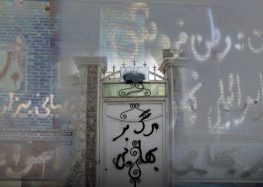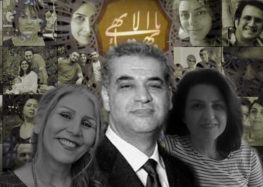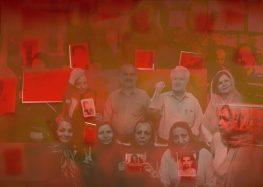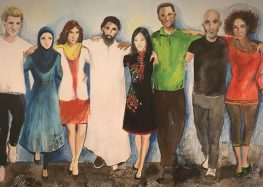Barring Students from Higher Education on Political and Religious Grounds
New Report Details “Totalitarian” Practice Punishing Students for their Views and Trying to Thwart Student Dissent
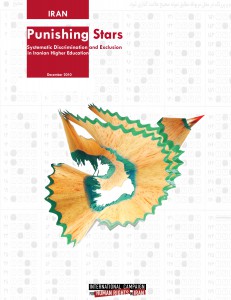 (4 December 2010) The Iranian government should immediately end its policy of depriving university students of higher education based on their political or religious beliefs, and respect their freedom of expression and conscience, the International Campaign for Human Rights in Iran said today with the publication of a new report, “Punishing Stars: Systematic Discrimination and Exclusion in Iranian Higher Education.”
(4 December 2010) The Iranian government should immediately end its policy of depriving university students of higher education based on their political or religious beliefs, and respect their freedom of expression and conscience, the International Campaign for Human Rights in Iran said today with the publication of a new report, “Punishing Stars: Systematic Discrimination and Exclusion in Iranian Higher Education.”
The 77-page report, based on interviews with 27 students barred from higher education, is being released on the occasion of National Student Day in Iran, 7 December.
“Excluding students from universities based on their political and religious views is a totalitarian practice that ruins careers and removes reform-oriented young people from future professional cohorts,” said Hadi Ghaemi, the Campaign’s spokesperson.
During the past six years, the administration of President Mahmoud Ahmadinejad, through close coordination between its Ministries of Intelligence and Science, has systematically targeted university campuses to suppress social and political activism as well as to exclude Baha’i students due to their religious beliefs.
Hundreds of students have been barred from higher education through this process. The International Campaign for Human Rights in Iran interviewed 27 students barred from higher education. Additionally, the Campaign compiled a list of 217 students who were denied their right to education. The true numbers are believed to be much higher, as many targeted students have preferred to remain silent and not make their case public, fearing further persecution and prosecution, or hoping that they can reverse their education bans by giving written guarantees to cease future activism.
Mahmoud Ahmadinejad, as the head of the cabinet, including the Ministries of Science and Intelligence, as well as the head of the Supreme Council of Cultural Revolution (three bodies engaged in systematically depriving students from right to education), is ultimately responsible and should be held accountable.
These policies have included wholesale shuttering of independent student organizations, massive imprisonment of student activists, purging ideologically suspect faculty, depriving targeted students from continuing their higher education, and even assaulting social sciences and humanities curricula in an effort to cleanse them of “un-Islamic” concepts.
Contents:
I. Executive Summary
II. Background
III. In Their Own Words: Interviews with Students
IV. Unfolding of Starred Student Controversy
V. Regulatory Framework for Denial of Education
VI. Violations of International Law
VII. Recommendations
VIII. List of Students Barred from Higher Education, 2005-2010
Soon after Mahmoud Ahmadinejad became President of the Islamic Republic of Iran in 2005, the term “starred students” entered Iranian discourse on higher education, indicating a mechanism for discrimination against, and exclusion of, students from higher education based solely on their political beliefs, the exercise of their freedom of expression, and in the case of Baha’i students, their religious beliefs.
Punishing Stars is a thorough and systematic study of Iran’s discriminatory higher education practices, based on close examinations of official policies and on direct testimonies by students about being barred from study, and their efforts to seek accountability by Iranian authorities.
“’Barring students from higher education is a violation of Iran’s international legal obligations to promote equality and nondiscrimination, and the Iranian people’s right to education,” Ghaemi said.
The Right to Education, which is proclaimed by the Universal Declaration of Human Rights and guaranteed by the International Covenant on Social, Economic and Cultural Rights, which has been signed and ratified by Iran, stresses equitable access to higher education, with meeting academic entrance standards the only legitimate admissions criterion. Students interviewed by the Campaign who had been shut out of universities included some who had among the highest scores on competitive national entrance examinations.
National Student Day, 7 December, is an occasion on which Iranian students have protested to demand their rights. It marks the date on which three demonstrating students were killed by security forces of the campus of Tehran University in 1953.
The Campaign called for an immediate end to such discriminatory practices, which punish university students for exercising their legitimate rights to freedom of assembly, expression, opinion, and religious belief.

